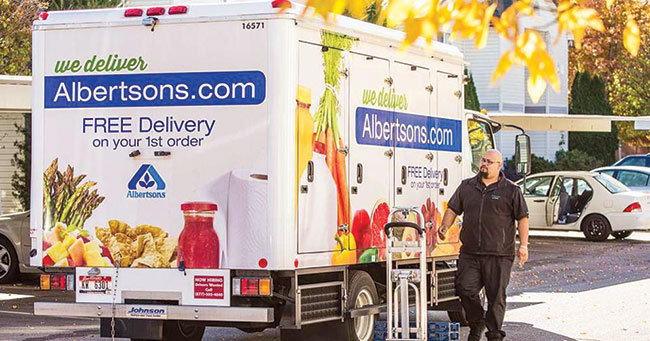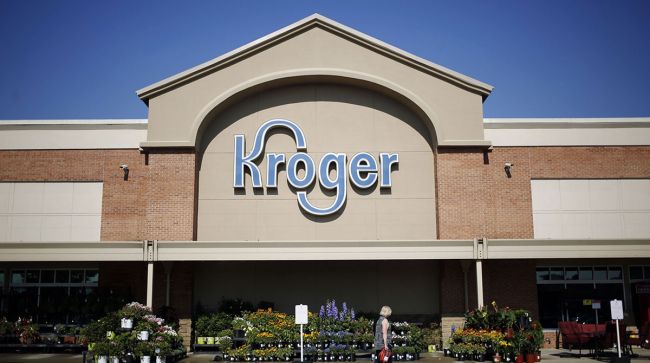Kroger Co. and Albertsons Cos. agreed to sell 413 stores to C&S Wholesale Grocers in a divestiture designed to help win antitrust approval for their $24.6 billion merger.
C&S will pay $1.9 billion in cash for the stores, which are mostly located in the West and middle of the country, the companies said in a statement Sept. 8, confirming a Bloomberg News report earlier this week. Closely held C&S is a major grocery wholesaler that also operates Grand Union and Piggly Wiggly stores.
Kroger is betting that the store sale will help it persuade the Federal Trade Commission to allow the Albertsons transaction, the centerpiece of the retailer’s push to keep up with Walmart Inc. and Amazon.com Inc. The FTC, which has recently challenged high-profile deals in video games, pharmaceuticals and mortgage software under Chairman Lina Khan, is scrutinizing the merger’s impact on grocery competition.
“This comprehensive divestiture plan marks a key next step toward the completion of the merger by extending a well-capitalized competitor into new geographies,” Kroger and Albertsons said in the statement.
The Kroger Co., Albertsons Cos. and C&S Wholesale Grocers rank Nos. 38, 40 and 98, respectively, on the Transport Topics Top 100 list of the largest private carriers in North America.

Kroger announced the Albertsons acquisition in October. (Albertsons)
Frontline workers will remain employed and existing collective bargaining agreements will continue, they said. Kroger may require C&S to buy a further 237 stores in connection with efforts to win regulatory approval of the Albertsons deal, which would bring the total divestitures to 650. That’s the number Kroger had earlier defined as the ceiling for store divestitures.
Kroger shares edged up 0.1% in New York trading at 9:40 a.m. The Cincinnati-based company also released financial results for its fiscal second quarter, reporting earnings of 96 cents a share. Wall Street had projected 90 cents, based on the average of analyst estimates compiled by Bloomberg.
The FTC still could sue to block the deal. Labor unions and officials from a range of states have urged the regulator to oppose the merger, saying it would hurt wages and competition. Some senators and members of Congress have also criticized the transaction.
Kroger said the Albertsons acquisition remains on track to close in early 2024, with CEO Rodney McMullen having vowed to fight in court if necessary.
The agreement with C&S covers stores in 17 states and Washington, D.C., along with eight distribution centers and five private-label brands. The sale also includes the QFC, Mariano’s and Carrs banners, plus exclusive licensing rights to the Albertsons brand name in Arizona, California, Colorado and Wyoming.
On a combined basis, Kroger and Albertsons currently have a footprint of about 5,000 stores. Walmart has roughly 5,200 retail locations in the U.S., including about 600 Sam’s Club warehouse stores. Amazon, which is already a force in categories such as diapers and some packaged goods, recently began the biggest overhaul of its grocery business since it acquired Whole Foods Market six years ago.
When Kroger announced the Albertsons acquisition in October, the companies said they would spin off as many as 375 stores if they couldn’t find buyers. Kroger later suggested in a merger agreement that 650 was the upper limit for divestitures.
For C&S, the deal will further an expansion into retail grocery stores. The Keene, N.H.-based company bought 12 stores from Tops Markets in 2021 when the latter grocer merged with the Price Chopper/Market 32 chain. That divestiture was approved by the FTC.
“C&S recently expanded its retail operations with the acquisition of 11 Piggly Wiggly Midwest retail stores, and hired a former retail grocery executive with significant retail experience to lead retail efforts,” the regulator said at the time.
In its sprawling wholesale business, C&S supplies more than 7,500 independent supermarkets, chain stores, military bases and institutions with over 100,000 different products.






